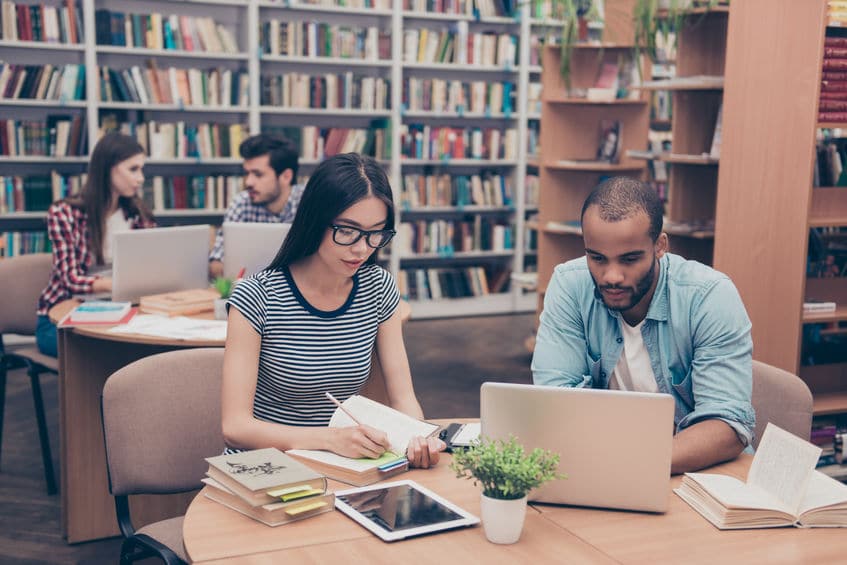
By Angell Kim
As a current graduate student, I am constantly exploring new ways to maximize my efficiency, manage my time, complete tasks promptly, ensure self-care, and, basically, do it all while not losing myself.
However, graduate school is not easy, especially during the pandemic. As graduate students, we may have to support a family, work a job or two, or even three, take five classes, or hold an internship, and we all could definitely use some new tips to navigate and excel in graduate school.
Here is some feedback from real, current graduate students to explore as you tackle this semester.
Do’s
Google Calendar
You might have a lot on your plate, and something like a calendar with reminders, that is synced to your phone and laptop, can be a monumental help each day. You could be doing an internship, working as a graduate assistantship, holding a few jobs, raising a family, and/or taking several classes. You will want to utilize an online calendar – I use Google Calendar – to mark the days and times when you have specific events, classes, and meetings or have to do specific activities. This can help you when someone needs your availabilities to set up meetings or appointments and when you need to plan studying time and set your work schedule. Additionally, marking the important days from the syllabi of your classes to start or prepare for exams or projects can be key to prevent cramming. It is always a good rule of thumb to check your calendar before signing up for something or setting an appointment or meeting.
The calendar isn’t just for your classes or work, but also to remind you when to take care of yourself. For me, I even put down times when I have to eat, which is a non-negotiable. When you’re in graduate school, you will always be working on something and time flies. I make it a point to ride my bike to work for exercise and eat three meals at specific times throughout the day. Some of my peers suggested that reminders from your calendar or even an athletic watch to get up to stretch or take a break are crucial when you are putting hours behind a computer screen.
Furthermore, on days I do not have class, I schedule time to do personal tasks to maintain my apartment, grocery shop, complete non-school related tasks, and spend time with my family. A peer commented on the importance of meal prepping, and this is a must-do on days you don’t have class.
Lastly, the idea of having a schedule each day can be rigid and exhausting. Sometimes you will have to block out times of “unscheduled” time. Time to relax, wind down, do nothing, or just stay away from the computer. This is equally important as scheduling “scheduled” time to accomplish all the to-do’s of the day.
Partner and Group Work
In one of my classes, I met a new peer, albeit virtually, and we work on class assignments together. This collaboration has been incredibly helpful to keep both of us accountable, motivated, and accomplished. We created a game plan on when we would come together (signing in online or safely meeting up) to complete specific, impending assignments.
Seeing people physically these days is difficult, and finding a good location to help with social distancing is also challenging, but trying to meet up physically once in a while is important for our social well-being.
A peer also commented that her weekly group meetings help clarify concepts and complete homework together. This kind of study environment with equally motivated peers can be helpful and useful as it can be a time to socialize with them as well as accomplish tasks.
Class Modifications
As most classes are online, they are also recorded. I have a class where we have two days of lecture and a lab. I realized that I was not retaining any information during the lectures because the professors were speeding through the presentation, as the class was only one hour, and that I could not take proper nor legible notes.
I commit time for that class outside of lecture time to watch those recordings to pause when I need to and take notes, draw diagrams, etc., and repeat parts where I don’t quite understand the material. If it’s recorded, be committed to watching it another time to truly grasp the material. You will have to explore some new ways to study and it’s okay if you go off the traditional path to take on that class or accomplish work.
Say Goodbye to Guilt
Sometimes I have felt guilty for sleeping or napping. My head sometimes has a scrolling marquee that creates a list of things I have to do today, tomorrow, the week, and then the avalanche of overwhelmingness controls me. Most of my classes are evening classes, so after class, I wind down and then sleep. Most of my closest circles know me for sleeping early, but little by little they understand my schedule and I also respect and maintain it. Something I have modified to get most out of the day since I cannot pull an all-nighter is to wake up earlier. As an early bird, I acclimated fairly quickly and realized I actually concentrate and understand homework readings better in the mornings.
Another peer shared that when her family validated her need for breaks, it helped rid her of guilt about them. Additionally, listening to your body when you need rest has been a practice that we all should work towards. The graduate school to-do list is never-ending, so creating those days of rest or time-off is key.
Don’ts
Saying Yes All the Time
Saying yes to everything can only lead to burn out, lower performance, and unnecessary stress. If you have the power to control what you say yes or no to, be wise to evaluate if certain activities or events are doable. Do you have the time to do X? Is it enough time to complete Y by the proposed date?
Checking your calendar and asking yourself prior to signing up or saying yes are important because you don’t have unlimited time nor energy. Investing in the things that matter to you and truly asking yourself if you can commit are extremely important when every day you have things to do and when free time is a gift.
Growing up, I felt that being more helpful or being more present was necessary. However, being too present or too helpful didn’t really help others nor myself. Before a plane takes off, you sit in on a security presentation given by the flight attendants. They advise that you should put your mask on first before helping others. Thus, help yourself and ground yourself, before committing to the many tasks of graduate school.
Studying or Reading on a Couch or Bed
We love being comfortable, but sometimes the couch and bed are too comfortable for spaces to work or study. Creating a set-up that keeps you alert for academic work and even changing up your study environment (from studying outside or studying at your desk) can be useful as you study online.
Food for Thought…
There will be times when you feel like you cannot do it or you feel helpless from the million things you have to do. However, when those moments arise, it is important to remember what you have to do that day and that day only. Sometimes you will need to slow down the pace, but you will get that task or homework assignment done.
One of my peers has also said that thinking about what you are bringing to a class or how what you are learning can prepare you for the future can help classes be more enjoyable.
Some of my elder friends have commented that studying is the best time of your life and to enjoy it. It may be difficult to understand what they are saying when graduate school is extremely demanding and stressful. However, when I think about my community, circles, neighbors, the classes I like, and the fun conversations I have during study sessions, I realize that although graduate school is stressful, it has aspects that are fun and energizing, and I am in awe with those around me going through the same stresses and challenges together during this time.

© Victoria Johnson 2020, all rights reserved